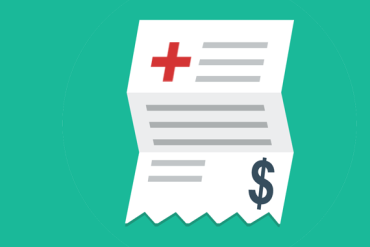It’s a situation that occurs all too often: Someone goes to the emergency room and doesn’t learn until he gets a hefty bill that one of the doctors who treated him wasn’t in his insurance network. Or a diligent consumer checks before scheduling surgery to make sure that the hospital she plans to use and the doctors that will perform it are all in network. Then she learns later that an assistant surgeon who she didn’t know and who wasn’t in her network scrubbed in on her operation.
“If we’re mandating that people buy insurance coverage it seems we should also protect them from surprise medical bills,” says Mark Rukavina, from Community Health Advisors in Chestnut Hill, Mass.
 If an out-of-network doctor or other provider doesn’t have a contract with a health plan that determines how much they get paid for services, they may bill the patient for any charges not covered by insurance. In those instances, the consumer could be on the hook for the rest of the bill, a practice known as “balance billing.” Although there’s no federal protection, about a quarter of states have laws on the books against balance billing by out-of-network hospitals, doctors or other providers in at least certain circumstances such as emergency care.
If an out-of-network doctor or other provider doesn’t have a contract with a health plan that determines how much they get paid for services, they may bill the patient for any charges not covered by insurance. In those instances, the consumer could be on the hook for the rest of the bill, a practice known as “balance billing.” Although there’s no federal protection, about a quarter of states have laws on the books against balance billing by out-of-network hospitals, doctors or other providers in at least certain circumstances such as emergency care.
Among the most recent states to take action is New York, which has a new statute that is cited by consumer advocates as a model. That law, which became effective April 1, significantly expands existing consumer protections and may be the most comprehensive law of its type, says Jack Hoadley, a research professor at Georgetown University’s Health Policy Institute, who recently co-authored a study that examined balance billing protections in seven states.
“If the pieces work like they set them up to, it feels like they’ve got all the bases covered,” Hoadley says.
Under the New York law, patients are generally protected from owing more than their in-network copayment, coinsurance or deductible on bills they receive for out-of-network emergency services or on surprise bills.
A bill is considered a surprise if consumers receive services without their knowledge from an out-of-network doctor at an in-network hospital or ambulatory surgical center, among other things. In addition, if consumers are referred to out-of-network providers but don’t sign a written consent form saying they understand the services will be out of network and may result in higher out-of-pocket costs, it’s considered a surprise bill.
“A key element that is really new is that for anyone who gets a surprise out-of-network service or who doesn’t get the right disclosure [beforehand] about it, there’s a way for the consumer to step out of the middle of the transaction,” says Mark Scherzer, legislative counsel at New Yorkers for Accessible Health Coverage, an advocacy group for people with chronic illnesses and disabilities.
Under the New York Law, when consumers get surprise bills, they need to complete an “assignment of benefits” form that allows the provider to pursue payment from the health plan, and then send it and the bill to their plan and the provider. As long as they’ve taken that step, they won’t be responsible for any charges beyond their regular in-network cost sharing.
“Consumers basically say to the doctor or the hospital, ‘I’m giving you my rights to reimbursement, you can duke it out with the insurance company,’ ” Scherzer says.
In situations involving out-of-network emergency care, consumers should inform their insurer if they receive a bill. Their insurer will take it from there.
The law also sets up an independent dispute resolution process for providers and health plans to use to settle on a fee for emergency services or surprise bills. The independent reviewers consider provider experience and training, case complexity, patient characteristics and usual and customary charges in making a determination, which is binding.
Representatives of the New York chapter of the American College Of Emergency Physicians worked closely with the New York Department Of Financial Services on the legislation, says Dr. Brahim Ardolic, the group’s president-elect. The organization continues to have some concerns about how much the dispute resolution process will cost providers and how fees for out-of-network care will be determined, Ardolic says. But they strongly support the law’s provisions that remove consumers from the balance billing process.
The law doesn’t apply to self-funded employer or union plans that pay worker claims directly. Such plans aren’t subject to state insurance laws. But workers in those plans as well as uninsured consumers who receive high surprise or emergency out-of-network bills can use the law’s independent dispute resolution process to try to get a reduction in the amount of the bill.
It’s too soon to say how well the law will work, but consumers are already calling their hotline to find out if they’re eligible, says Elisabeth Benjamin, vice president of health initiatives at the Community Service Society of New York.
“So many times people just give up,” Benjamin says. With the new law, they may not have to.
Please contact Kaiser Health News to send comments or ideas for future topics for the Insuring Your Health column.







